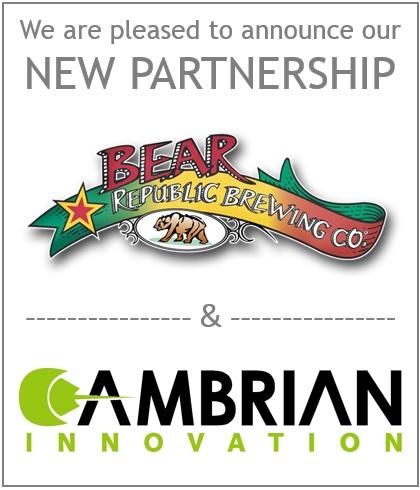As we have pointed out before, what comes out of a brewery as waste is arguably just as important as the stuff that comes out as drinkable beer. Wastewater is a huge issue for every brewery, certainly in California.
Bear Republic is trying out a new approach at its main plant up in Cloverdale, using a system from a Boston-based Cambrian Innovation that uses microbes to break down wastewater, both cleaning the water and generating electricity for the plant. It’s similar to what large sewage treatment systems such as Santa Rosa and East Bay Municipal Utility District have been doing for a long time, but this time in a metal box that is small enough to be parked behind a brewery or other business.
The brewery says the new EcoVolt units will generate about half of the brewery’s electricity and 20 percent of its heating needs, while reducing the cost of discharging the brewery’s waste water. The waste from breweries isn’t toxic, but it has lots of sugars, yeasts and other biological materials that can mess up sewage treatment plants that aren’t prepared to handle it. The more a brewery can reduce biologically active material, the easier and cheaper it is to dispose of it, or even reuse it on site for functions such a cooling.
“Innovation provides the double benefit of meeting energy needs and preserving valuable water in short supply due to California’s drought, while helping businesses thrive and maintain local jobs,” said Jared Blumenfeld, the federal EPA’s Regional Administrator for the Pacific Southwest, in a release hailing the new units at Bear Republic. He joined founder Richard Norgrove at an event today dedicating the new system in Cloverdale.
The EPA is one of 11 agencies that fund the Small Business Innovation Research program, which sets aside $2.5 billion to fund development of technology to protect human health or the environment. The SBIR helped fund Cambrian’s EcoVolt project.
– Sean Scully


 buyer at Fircrest Market in Sebastopol and the administrator of the NorCal Beer Geeks group on Facebook.
buyer at Fircrest Market in Sebastopol and the administrator of the NorCal Beer Geeks group on Facebook.